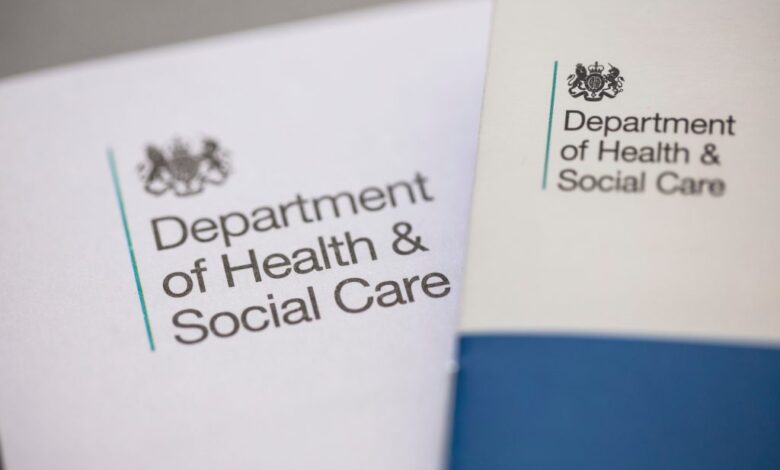Analysis: priority issues on new health secretary’s desk

After narrowly being elected to his Ilford North seat in last week’s general election, Wes Streeting has joined Labour prime minister Sir Keir Starmer’s cabinet as secretary of state for health and social care.
Mr Streeting has inherited, to say the least, a difficult landscape: an underfunded, under-resourced health service, social care in crisis and a profoundly unsettled workforce.
He has made it clear that ending the British Medical Association (BMA) junior doctor strikes and cutting waiting lists are his top priorities, but plenty of other challenges await the new secretary of state.
Nursing Times has broken down some – but by no means all – of the key issues relating to nursing and midwifery that Mr Streeting will now need to tackle.
NHS staff pay
More than a million staff are on an Agenda for Change pay contract, of which more than 350,000 are nurses and midwives.
This vast group of workers is supposed to have their pay reviewed annually and, where appropriate, increased in a deal issued each April. However, for the past few years this has not happened.
The Department of Health and Social Care (DHSC), under Mr Streeting’s predecessors, was late in successive years triggering the process that allows the NHS Pay Review Body (PRB) to give a new offer.
As a result, the current (2024-25) pay deal has still not been finalised – meaning it is now more than three months late.
During the general election campaign period, nursing staff made it clear they expect Mr Streeting to not only expedite the 2024-25 pay deal, but ensure the DHSC triggers the process for next year on time, too.
Even if a new deal is offered though, Mr Streeting may face further industrial action from nurses unless it matches expectations from unions – who have not ruled out strikes if it falls short.
In addition, dissatisfaction in recent years with PRB offers has seen some unions, such as Unison, disengage from it and demand direct annual negotiations with the DHSC for the next pay offer.
The new secretary of state will, therefore, have demands to reform (or even scrap) the PRB process on his hands, as well as the thorny issue of the pay offers themselves.
Nurse recruitment and retention
As has been well documented, there are currently not enough nurses, midwives and support workers in the NHS or the social care sector.
Reports of staff shortages, burnout, delayed or rushed care and people being worked to their limits are commonplace in the professions.
Nurses and midwives are leaving their jobs due to poor pay or working conditions and are, in some cases if not many, being replaced with personnel of less than equivalent experience or qualification.
As health and social care secretary, Mr Streeting is now responsible for tackling the widening gaps in the NHS workforce, in particular, the issue of nurse shortages that have recently plagued the health service.
Last year, under the previous administration, NHS England published its Long Term Workforce Plan, which laid out ambitious targets for the recruitment and featured measures to improve retention of staff.
If the plan is fulfilled, there would be tens of thousands of additional nurses and midwives being trained each year and, it is hoped, commissioned places for them to work in the NHS.
As well as domestic recruitment, the issue of internationally educated nurses has come to the fore in recent years.
In its pursuit of recruiting 50,000 new nurses to the NHS, the previous government significantly upped the international recruitment of staff.
While it achieved the goal of growing the workforce, the programme has been criticised for being unsustainable and exploitative of developing countries, which are exporting more nurses than they can afford.
Meanwhile, Nursing Times has previously reported on abuse towards the nurses themselves who have come to the UK and faced difficulties finding appropriate housing, recruitment fees and visa problems – as well as racism from staff and patients.
Mr Streeting’s party, in its manifesto, pledged to back the Long Term Workforce Plan and made no mention of international recruitment of registered nurses.
The health and social care secretary will be expected to keep growing the nursing workforce, but how he will do this remains to be seen.
Crumbling hospitals and the New Hospitals Programme
Last summer, hundreds of premises built by the government in between 1950 and 2000 were found to be structurally unsound as a result of the use of reinforced autoclaved aerated concrete (RAAC).
RAAC made national headlines when over a hundred schools were shut because of concerns that the concrete was reaching the end of its lifespan and crumbling.
Following this, many hospitals were also found to contain RAAC, and Nursing Times reported on the impact this has had on patient care.
Nurses spoke out about leaky, crumbling and otherwise unsafe hospitals which needed repairs or, in some cases, rebuilding.
The Conservative-led government amended the now-delayed New Hospitals Programme, which aimed to build 40 hospitals by 2030, to replace seven of the “most affected” sites as part of it.
Three of the 40 sites in the New Hospitals Programme (with RAAC sites being prioritised) have been opened or part opened, with three more scheduled to open in 2024.
As with the workforce plan, the Labour Party pledged to continue the programme – but with reports of rising costs to the scheme, Mr Streeting may have to seek amendments, more funding or reductions to it.
Maternity reviews, racism and culture inquiries
Maternity scandals, a culture of racism and a regulator under review: Mr Streeting has on his hands a health service facing heavy scrutiny over the way its people are treated, and also treat their patients.
Over the last few years, multiple reviews into NHS maternity care were undertaken following severe concerns about safety and outcomes for mothers or their babies.
Reviews are, or have been, being undertaken in Nottingham, Shrewsbury, Cumbria and elsewhere across the UK into maternity care.
While improvements have been made at some trusts, Labour pledged to improve this area of healthcare and said it would set specific targets on closing the maternal mortality gap for Black and Asian women.
Mr Streeting’s office will now take on the burden of both the party’s manifesto pledges and the response to new and existing scandals and reviews in maternity.
Racism in the health service more broadly has also been highlighted frequently in recent years, sparked especially by the pandemic.
High profile whistleblowing incidents focusing on race, hate crime reports on the rise in NHS hospitals and an increasingly diverse workforce show the importance of a minister who will tackle the issue.
Just days after the general election, human rights organisation Brap penned a letter to Mr Streeting demanding just that.
Mr Streeting will also need to contend with the findings of the recent report into the Nursing and Midwifery Council (NMC), which dubbed the regulator a “hotbed” of bullying racism and toxicity.
Furthermore, Mr Streeting’s office will be expected to respond to the inquiry into the events leading to the murder of six babies by Lucy Letby at Countess of Chester Hospital, among others.
Other challenges
Digital infrastructure, technology and the new frontier of artificial intelligence are all issues that Mr Streeting will have to tackle in the coming months and, if he remains in post, years.
The NHS estate has well-documented problems with its computer and internet infrastructure, and this will need to be addressed before Labour’s ambitions to further digitise patient records are met.
As well as this technology challenge, the social care sector remains in crisis with capacity issues having an incredibly large knock-on effect on hospitals through delayed discharges.
The social care nursing workforce, itself, recently told Nursing Times that it want parity with health and a move towards a National Care Service, something Labour has loosely promised previously.
In his new capacity, Mr Streeting has already shown a strong desire to put an end to one significant health headline in the form of the BMA strikes, by inviting the union back to the negotiating table.
Meanwhile, in his first major statement as the new health secretary, published on Friday, he attracted headlines by declaring the NHS was “broken”, while acknowledging its workers were trying their best.
With potentially five years until the next chance of a new administration, the health and social care community will, no doubt, be anxious to see how Mr Streeting’s plan to fix the NHS plays out.






